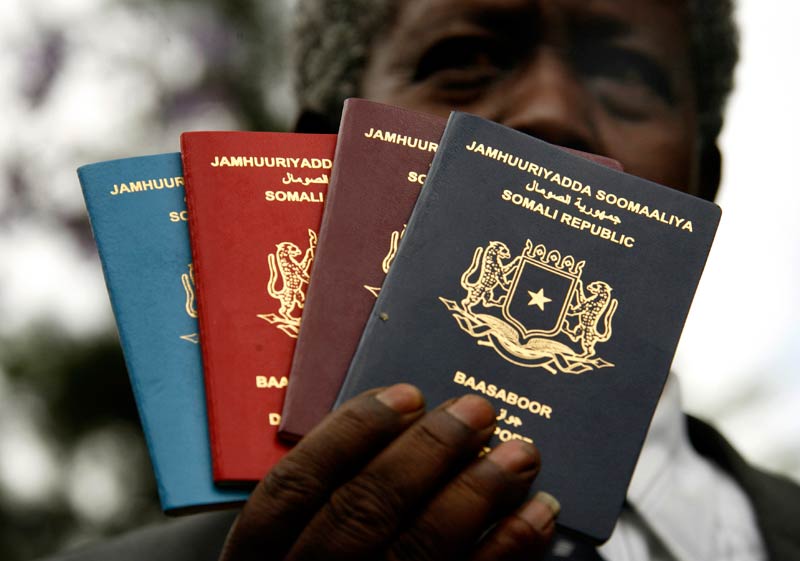
I have recently been pondering the legitimacy of what we consider to be African. As the colonisers stripped off our identity and gave us new ones, much was lost and intertwined and influenced by their philosophies. I chuckle to think that the African diaspora sometimes thinks that Africans in Africa don’t have identity issues. Hah!
Our brothers and sisters of the diaspora are sometimes utterly oblivious to the struggles of the Africans who stayed behind. Indubitably, a lot was lost in slave ships, and staying granted us the privilege of immortalising many cultural aspects and traditions that they lost in the seas and upon arrival to new shores. Knowing which tribe I belong to and being able to emulate certain practices is one of such privileges. But although we were not stolen (or sold) from Africa, Africa was stolen from us…right here in Africa.
Our languages were stolen. How many African countries have indigenous languages as official languages, next to the language of their colonisers? Amongst our youth (the future), how many of us can speak the languages of our forefathers? I know quite a number of us can, and therefore this reality is not true for all of us especially in countries like South Africa and Zimbabwe, where there are multiple languages stipulated in the Constitution and where people commonly speak indigenous languages besides English. But, how many of us can boast of such (especially the so-called educated populace, the driving force of society)? And how much is being done to push this cultural agenda in countries/societies?
Our minds were stolen. How much do we learn about pre-colonial Africa? Our former civilisations have gone into obscurity.
How much Black literature do we teach in our schools? Who is sponsoring our best-selling authors and where are they being educated? The scientists, archeologists and anthropologists that explore Africa, where are they from?
Many are the books we read about us that were not written by us. “The most powerful weapon in the hands of the oppressor is the mind of the oppressed,” Steve Biko reminds us.
Our pride was stolen. The images the rest of the world sees of Africa are the same images Africa sees of Africa. W.E.B Dubois was beautifully articulate when he spoke of double consciousness, this “…peculiar sensation, this double-consciousness, this sense of always looking at one’s self through the eyes of others…“. In our own minds, Africa is associated with distress and anything we deem to be “too African” is considered backwards, ugly.
Our resources were stolen. We paid a high price for freedom, and we all see the flag of independence that went up but never saw the negotiations that went down in exchange for liberty. The colonial powers did not just leave without making us sign lethal contracts and treaties that continue to harm us today, giving them 10% of this and 30% of that. French presence in francophone Africa is, for instance, well documented through Franceafrique, and there is clear economic, political and military control. In the words of François Mitterrand: “Without Africa, France will have no history in the 21st century“.
Looking at a continent that was and still is highly controlled and influenced by foreigners, I think it is time we challenge the authenticity of the African identity. Our view of Africa and the politics of our existence are not dictated by us. Upon independence, political leaders launched “Africanisation” initiatives to bring us back to our roots, renaming places amongst other things. The Republic of Upper Volta became Burkina Faso (“the land of upright men”), Northern Rhodesia became Zambia – and if there were initiatives to “Africanise” Africa then I think we have to consider how we became “un-African”. Aren’t we African bodies with European minds? So, when you say you are African, what do you mean?
We are often told about the privilege of having been born in the motherland. But I see no benefit in knowledge one is not aware of.
Harriet Tubman did say she freed so many slaves but could have freed a thousand more if only they knew they were slaves. In essence you are still in slavery if you don’t know you are free. Africa is perpetuating the legacy of its captors and in various aspects we have become mere relics of colonialism, unaware of our identity. What good is being African if you don’t know you are African?
Not only do we have to seek but we have to understand our roots, because what good is perpetuating traditions without understanding origins? There is no value.
We cannot change history but we can study it, learn from it and appreciate it.
And nothing will make you appreciate your African identity more than having it being stolen, feeling lost and finding it again. These minute findings are gigantic steps towards dealing with our crisis.
Clenia Gigi is a a student, avid reader, poet, spoken-word artist, Pan-Africanist and feminist.
